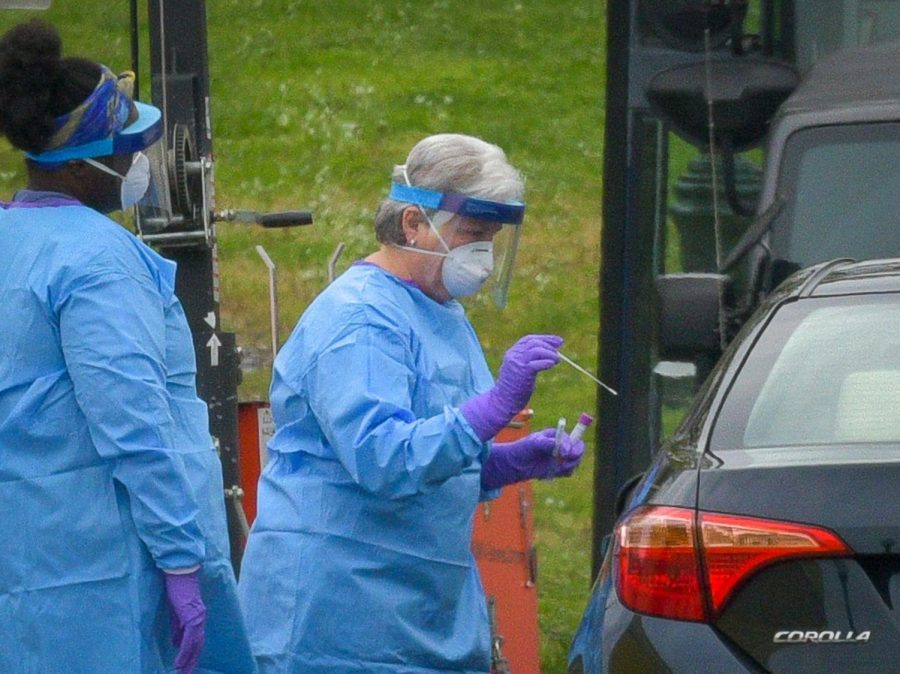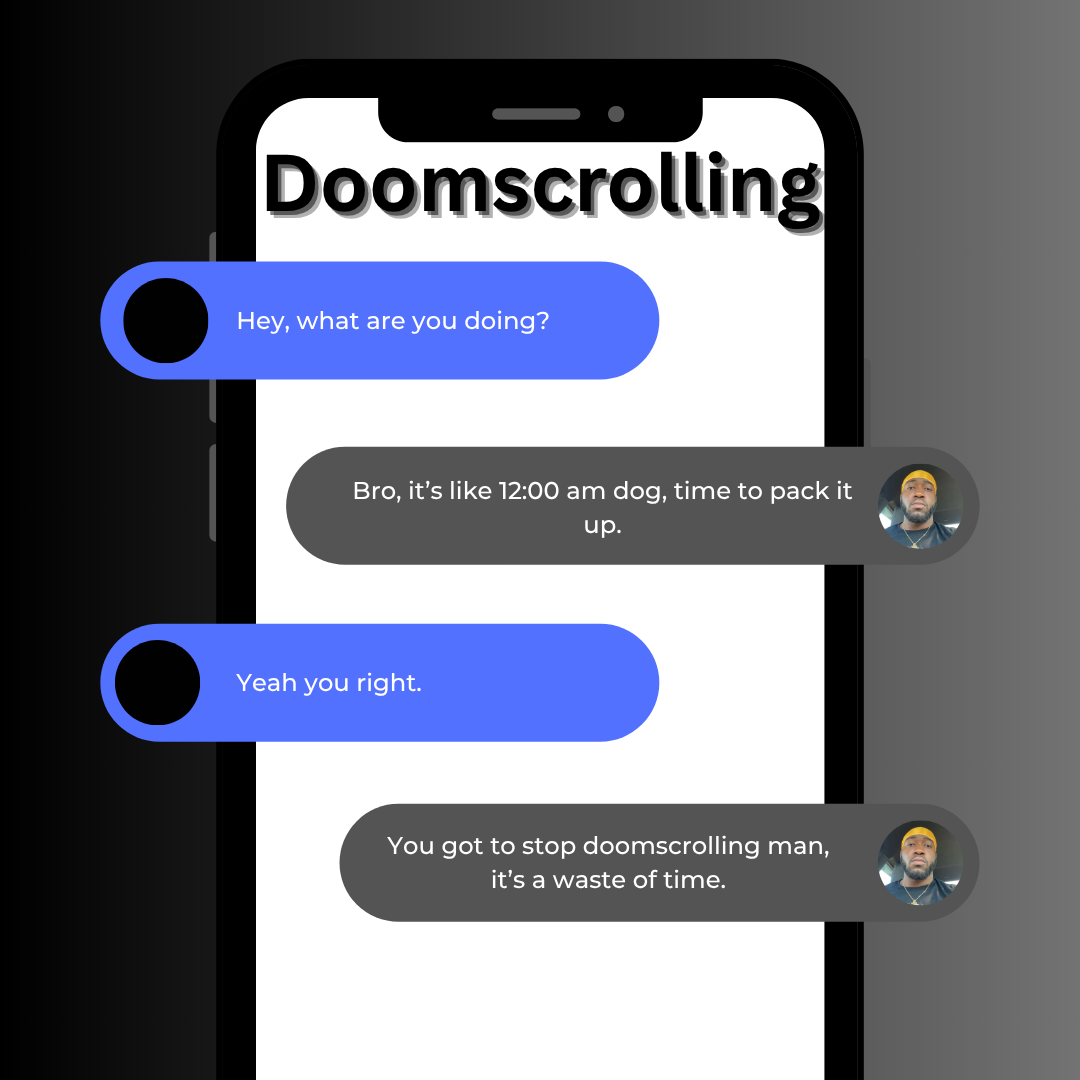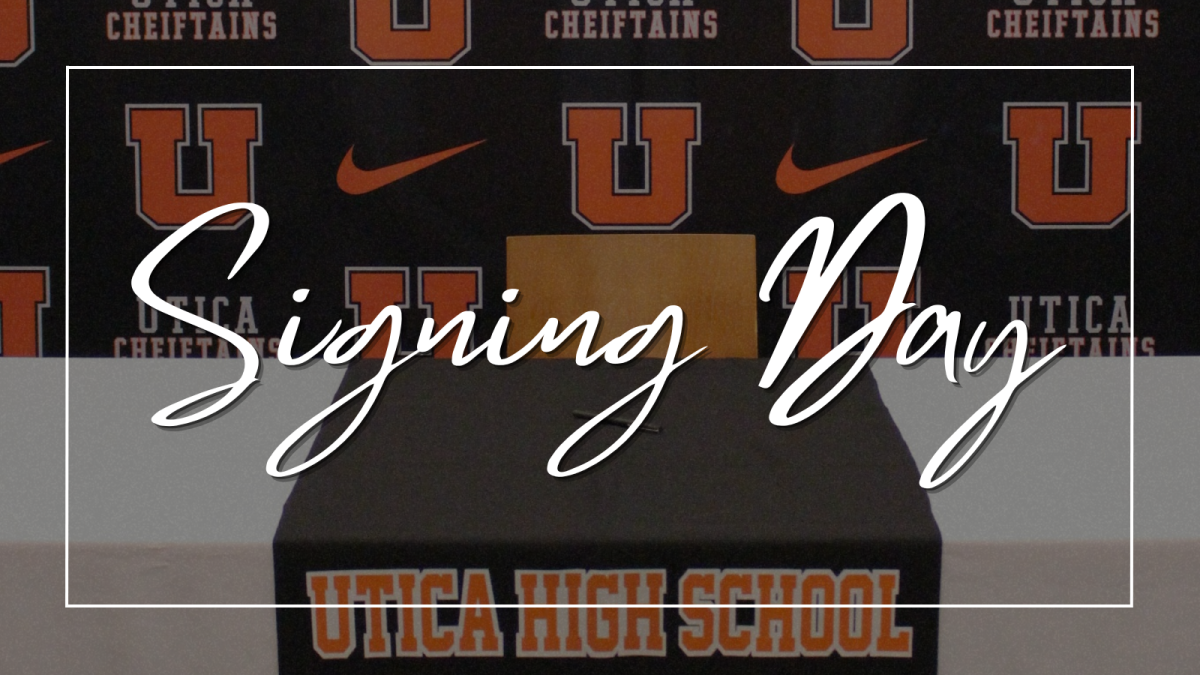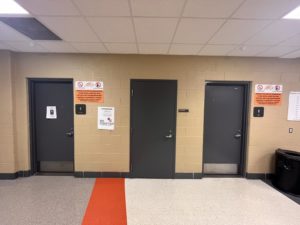Cancelled.
Community reacts to onset of COVID-19
This is a drive-up testing site for possible COVID-19 patients. Not everyone can be tested for COVID-19, but in order to get tested, one has to contact a local healthcare provider. These healthcare workers are wearing CAPRs, N95 masks, gloves, and gowns to protect themselves.
May 1, 2020
In the time of social distancing and uncertainty, people are trying to make sense of the unknown. Schools are closed, sports are canceled, and people are losing their lives over a virus that is changing the world.
On Mar. 23, Michigan Governor Gretchen Whitmer signed an executive order which requests that all residents should stay home to the best of their ability. Necessary workers such as health care providers, first responders, and food suppliers are among some that are still in operation under the order. This follows after Whitmer declared a state of emergency on Mar. 10 when two cases of COVID-19 were confirmed in Michigan.
A SHIFT AT THE HOSPITAL
Tara Moore-Lehman, an ER Technician at Ascension St. John Hospital in Detroit, was one of the first Emergency Department employees who screened potential COVID-19 patients. She prepares for long shifts in a high-stress environment while having to be extra careful in every precaution against COVID-19.
“My shift in the beginning of all this was chaos, We lost a lot of people the first week the governor shut down schools. And we were still trying to figure out our policies and guidelines and exposures, but at the same time, we had to help these people who were dying as well and we had to do it fast. Work was stressful, tense and very anxious for all staff working in the ER. Guidelines and policies were changing every other hour every day,” Moore-Lehman said. “It was like having a constant mental check off list before going into a patient’s room or even having a patient walk into the ER. Before, we could walk into a patient’s room without worrying if we were going to contract something and spread [the virus]. The ER usually has a high anxiety level as it is, but this is a whole different type of anxiety and fear because we could easily have been exposed or had it and could pass it off to family members and friends which as a healthcare employee, we never want.”
Besides the work environment changing, her daily uniforms have evolved into layers of protective gear, as well.
“My daily uniform now consists of wearing scrubs, shoes that can easily wipe away any bodily fluids [Danskos are what I wear], a regular surgical ear loop mask, a N95 mask, and on top of that I wear a homemade mask to protect my surgical mask and N95, a surgical cap, and now headbands with buttons to save my ears from all the strings that rub on my ears. Along with that I wear a face shield and if I don’t have that then I wear my safety goggles.” Moore-Lehman said, “If I do go into a COVID-19 room or if there is suspicion of someone having COVID-19, I do HAVE to wear what we call a CAPR, which stands for Controlled Air Purifying Respirator due to my face not actually being fit for an N95. I don’t wear the CAPR for every shift unless I’m working in the COVID area of the department or if I have a COVID-19 positive patient to take care of due to there only being 5 CAPRs for the whole ER department. This is why I wear a bunch of masks when I can’t get a CAPR. We also wear a surgical gown and I also double layer my gloves.”
Hospitals around the country are also reporting shortages of necessary supplies like masks and goggles. There are also limited ventilators in each hospital for patients to use.
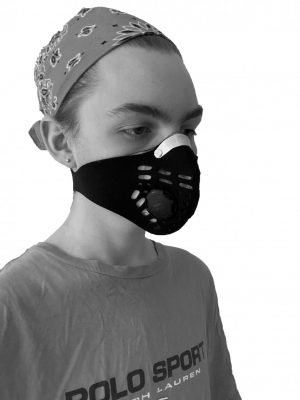 “We are running out of things but they are being replaced fairly quickly. It’s not like our normal brand stuff but we still have wipes and we still have all the essentials we need right now,” Moore-Lehman said. “I am able to get a new N95 if mine gets soiled or if I need a new one. The only thing we’re running low on is the CAPR shields.”
“We are running out of things but they are being replaced fairly quickly. It’s not like our normal brand stuff but we still have wipes and we still have all the essentials we need right now,” Moore-Lehman said. “I am able to get a new N95 if mine gets soiled or if I need a new one. The only thing we’re running low on is the CAPR shields.”
Amid stressful shifts and long hours spent in masks, many hospitals are doing their best to keep morale high.
“Our hospital plays music when COVID-19 patients are leaving the hospital. Right now, ‘Ain’t No Mountain High Enough’ plays every time a COVID-19 patient gets discharged.”
FIGHTING A VIRUS INSTEAD OF FIRE
Stephen Jelsch is a firefighter/EMT for the Rochester Hills Fire Department, and he has never had to face anything like COVID-19 before. His shifts are long, he’s working lots of overtime, and calls about COVID-19 have been immense.
“Working during COVID-19 is obviously more stressful than a normal workday. The city is manning extra rigs right now, so they are calling in for overtime. Right now, they are trying to get all the manpower that they can for each station. There are more calls than usual due to COVID-19, which makes us more busy than normal sometimes,” Jelsch said. “There is a lot more preparing and a lot more learning. Every day we learn new things like protocols and policies. There have definitely been some changes in the way we have to prepare for certain calls.”
Calls with a suspected COVID-19 patient are forced take more precaution than normal, but in the same amount of time as a regular call.
“If the call is a suspected COVID-19 patient, we wear either an N95 or an N100 mask, safety glasses, a gown, and gloves. Usually for these calls, we have to get our gear on while we are en-route. Because firefighters/EMTs share the same living space for a shift, it would be really bad if one of us got infected, so we have to be extra careful,” Jelsch said. “Right now, we are not running out of supplies because our city buys them for us. We will be stocked for a long while at the station. Yeah, they’re manning extra rigs right now, so they’re calling in overtime for more manpower.”
PREPARING FOR A CANCELED TEST
Junior year is said to be the hardest year in high school due to standardized testing. However, due to the virus, standardized tests have been canceled across the country.
“I was upset at first when I heard that the tests were canceled because I was prepared to take both [the SAT and ACT],” junior Jenna Clark said. “Now, I’m okay with it because I have more time to study.”
Some colleges and universities have even waived the SAT or ACT from admissions for the fall 2021 school year. Other universities and colleges are going test-optional for their school year.
“I plan on applying to colleges in Michigan that don’t require standardized test scores for the class of 2021 for now,” Clark said, “and when I can take the tests in the fall I will apply to more colleges.”
A SENIOR SEASON SHATTERED
It’s the last season for senior Megan Hanoush to play varsity soccer with her teammates. With playing soccer for Utica since freshman year, it will be hard to leave.
“Not getting a final season is really upsetting to say the least. It’s heartbreaking that we had to end like this. One day there are tryouts after school and the next school is being canceled for weeks. I was hoping for big things with my team this year, too. I wanted us to become MAC White Champs for my senior year,” Hanoush said. “The team was looking really good this year and I believe we had a big chance at winning the MAC. No matter what happens, this team will always have each others’ backs and I will never forget all of the fun memories I created with being a part of this program.”
AN UNKNOWN FUTURE
While the future of the virus is unknown, all people can do is be patient until there is a safe time to resume normal daily activities. There is no time line that gives definite answers, but the mark in the community from COVID-19 will last a lifetime.


